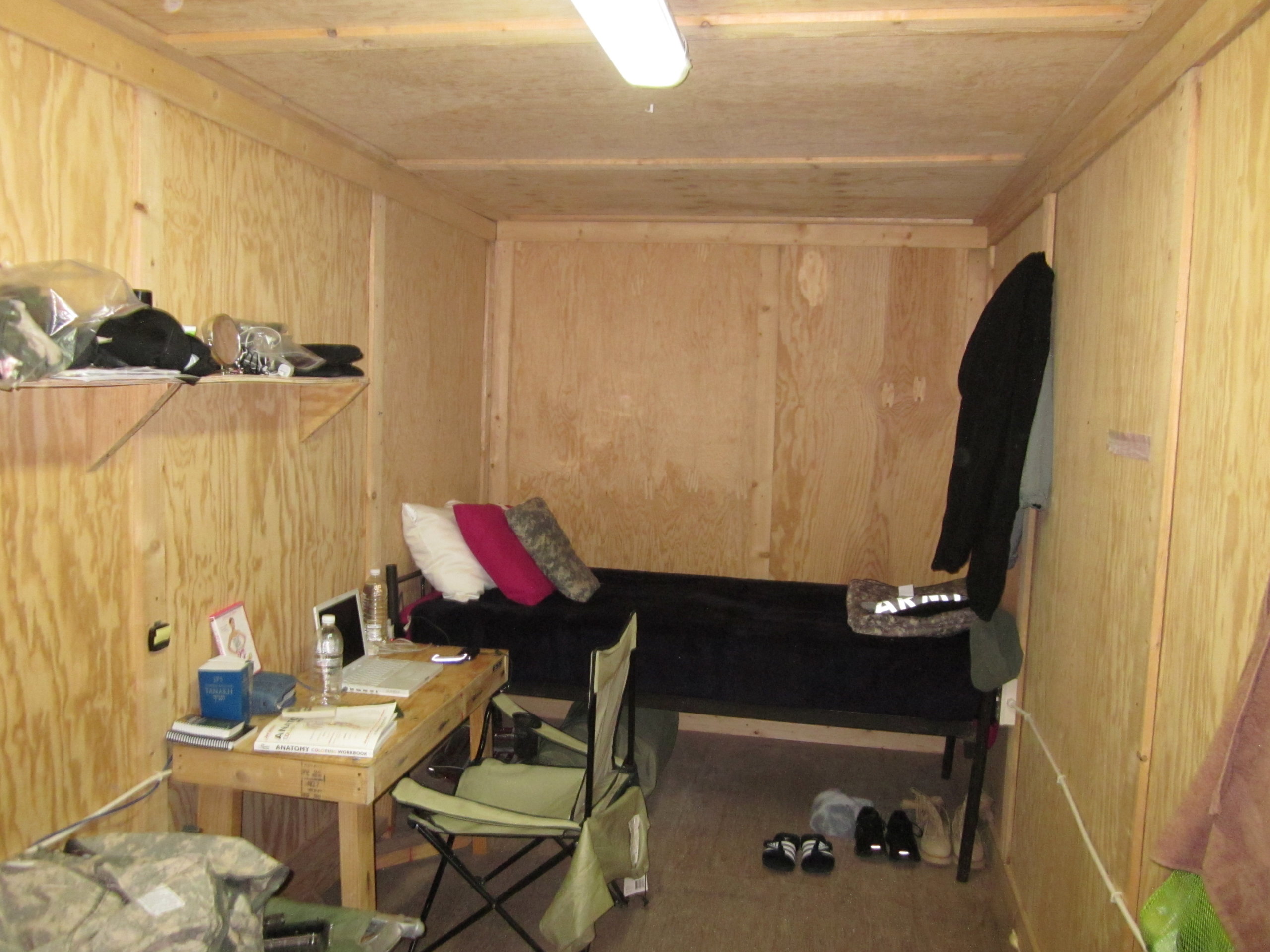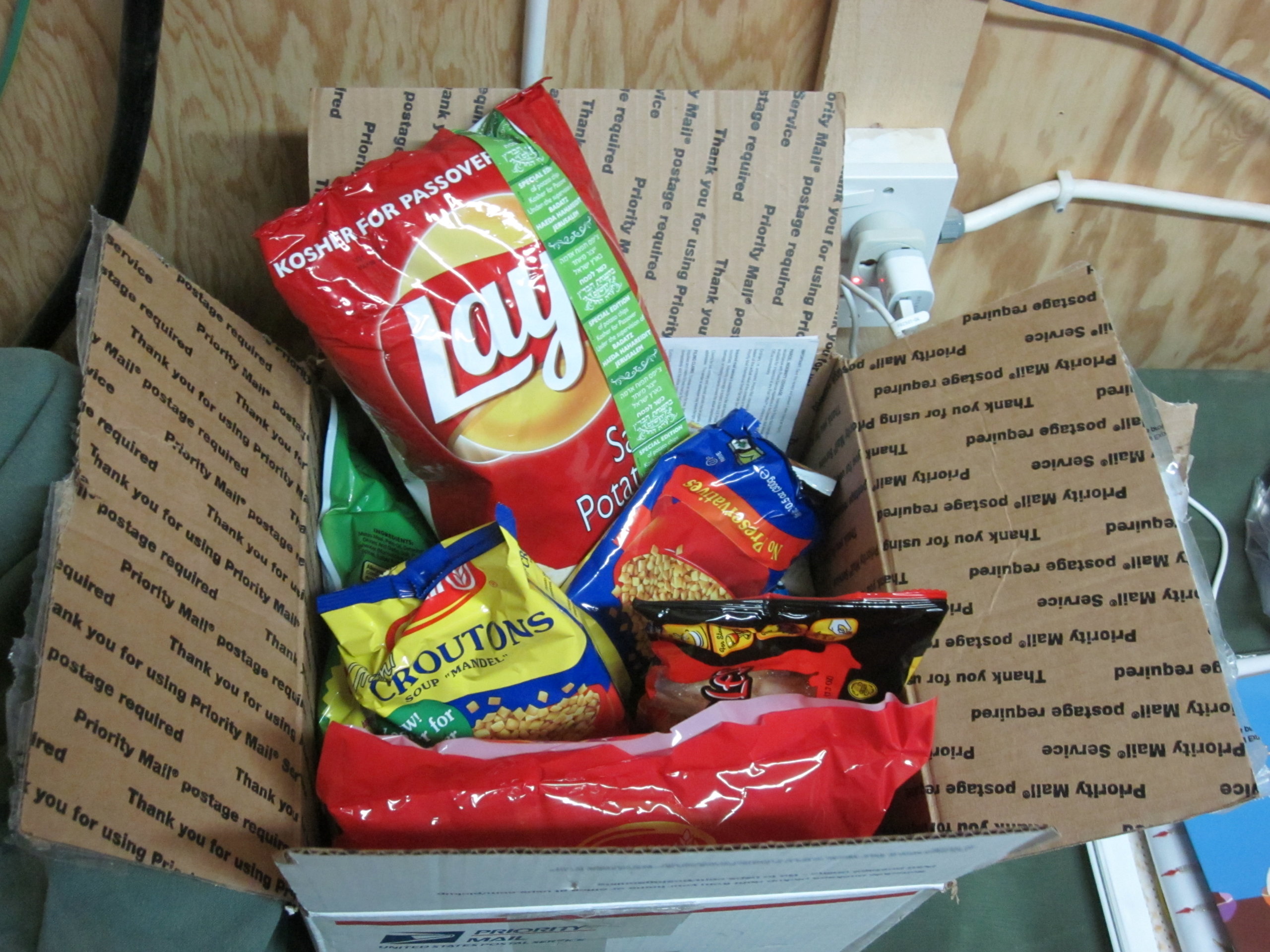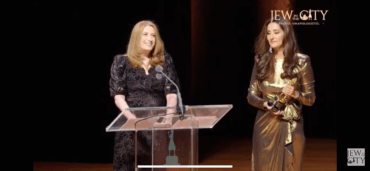The Time I Spent Passover In War-Torn Iraq
The year was 2011, and I was an active duty medic for the United States Army deployed in Iraq. Being Jewish in the military was interesting at the best of times, and in the worst of times – while in an active war zone – it was exceedingly complicated. Keeping kosher in the military is not simple, especially in the austere environment deployment presents. Kosher MREs (Meals Ready to Eat) exist, but are often hard to get and require special requests that take weeks. These rations are engineered to help provide nutrient dense food to soldiers without requiring cooking or cold storage.
If keeping kosher is hard, imagine the holidays. As Pesach approached I was stationed about 30 miles from the Iranian border on a far-flung outpost. This outpost was so small that it measured a mere 100 feet across and was less than ¼ mile long. Positioned along a remote runway, I lived inside of a Conex box that was lined in wood and outfitted with a door and basic electricity and AC. I also had a spare bunk where I provided medical care and coverage for a group of 15 UAV pilots (Unmanned Aerial Vehicles). These pilots helped provide aerial intelligence for our ground forces as they ran operations. 
I began to inquire as to what my options were for Pesach. I learned that a Jewish Chaplain was being flown into Baghdad and that he would be conducting Passover Seders for Jewish Service members in the country. Amazing! There was but one catch. If I went, the unit I was attached to would be without medical support for weeks until a replacement could be flown in.
In the military you learn to place the needs of the group and the mission before yourself. I decided that it would have been selfish of me to leave my fellow soldiers without critical medical aide.
So I chose to have Pesach where I was. I asked my mother for help. I would need kosher for Pesach food and all the fixings required to conduct a Seder. Receiving packages in an active war zone is as complicated as you can imagine. Our addresses are not physical addresses. They are general locations. The military receives our packages and forwards them to where we really are. This ensures that our actual locations are kept secure. A few days later I was told that I should be receiving some packages. I was expecting a box or two. Synagogues and organizations like Kosher Troops had stepped in to supply food. A couple of days before Pesach I went on a supply run into the main outpost. I was greeted with an incredible surprise.
 Seven boxes, stacked in a corner, all for me. It is hard to describe the emotions that overcame me as I struggled to collect my wares. As a soldier who is deployed, you feel isolated from the average American, assuming that no one is really thinking about you or understanding how difficult life is day to day. But suddenly, I was no longer alone. I had not been forgotten. When the Jews received the Torah, it is said they were “k’ish echad b’lev echad” – “like one person with one heart.” I felt deeply united with my nation in that moment – my brothers and sisters had ensured that I was cared for even though I was so far off the map that I didn’t even have an address!
Seven boxes, stacked in a corner, all for me. It is hard to describe the emotions that overcame me as I struggled to collect my wares. As a soldier who is deployed, you feel isolated from the average American, assuming that no one is really thinking about you or understanding how difficult life is day to day. But suddenly, I was no longer alone. I had not been forgotten. When the Jews received the Torah, it is said they were “k’ish echad b’lev echad” – “like one person with one heart.” I felt deeply united with my nation in that moment – my brothers and sisters had ensured that I was cared for even though I was so far off the map that I didn’t even have an address!
When I got back to my dwelling and opened up the boxes I was greeted by jars of Gefilte fish, ready to make meals, matzah, jam, candy, chips, juice, and cookies. There were also several versions of the Haggadah, cards from Jewish elementary students, and even a “Pesach kit” which included a Seder plate, little lamb shank bone, and a “how to guide.” In that moment, I realized that this would be my most meaningful Pesach to date.
It kind of felt like I was re-living the exodus, with mountains of sand all around me, dwelling in a makeshift tent community. I was tasting the privileges of freedom – choosing to observe and carry on thousands of years of tradition even when it was uniquely challenging. And though I was a lone Jew in a remote outpost in Iraq my Jewish brothers and sisters were right there, by my side.
If you found this content meaningful and want to help further our mission through our Keter, Makom, and Tikun branches, please consider becoming a Change Maker today.






